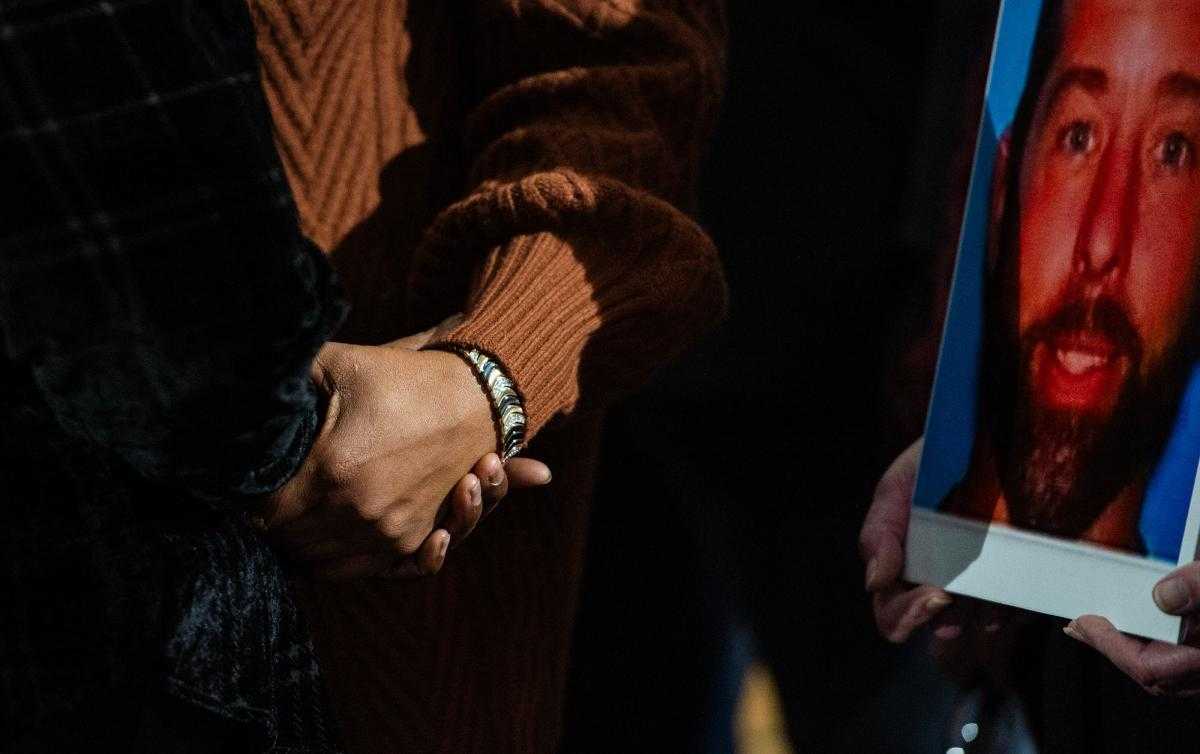BY SIMONE J. SMITH
“We have free healthcare; it is one of the reasons why I live in Canada.” Hearing statements like this used to set off a sense of pride in me, because I thought this is the one thing that set our country apart from other countries.
Actually, this is one of the reasons that I have always said that I would never live in the United States of America, because there you have to pay for your healthcare, which means that if you don’t have money, you could lay there dying on the street, and no one would help you, unless…
I received a report a few days ago that made me realize how silly my thoughts actually are. Here I thought we were at an advantage, only to realize that honestly, we are not better off than our American neighbours.
The Canadian healthcare system (aka, Canadian Medicare) is more than a set of public insurance plans: more than 90% of Canadians view it as an important source of collective pride. What is now coming to surface is that Canadians are deeply concerned that the health care system is no longer meeting their needs. With the system under significant strain — patients struggling to access care, intermittent emergency department closures, growing surgical backlogs— there have been increasing calls to re-examine how the Canadian government funds and delivers health care services in Canada.
Too often advocates of Canadian-style health care present limited, or even misleading information about the true state of Canada’s health care system and worse, oftentimes present the ideal of Canadian health care rather than its reality.
Medicare was born in 1947. It spread across the country through federal cost sharing, and eventually was harmonized through standards in a federal law, the Canada Health Act of 1984. The health-care system is less a true national system than a decentralized collection of provincial and territorial insurance plans covering a narrow basket of services, which are free at the point of care.
It is funded primarily through taxes at the federal and provincial/territorial levels. This funding helps cover the cost of essential medical services, such as doctor visits, hospital stays, and some preventive care. Our healthcare system is supposed to provide universal coverage, meaning that all Canadian citizens and permanent residents are eligible for the same basic healthcare services. This ensures that everyone has access to necessary medical care regardless of their financial status.
While the Canadian healthcare system is generally well-regarded for its commitment to providing access to medical care for all residents, it is not without challenges, as you are soon going to learn more about in this article. Canada is renowned across the world for its universal healthcare. However, despite this, there is still a cost for certain types of treatment – and this cost can be a barrier for some people in need of care. There are profound health inequities experienced by Indigenous populations, and some vulnerable groups also require coordinated action on the social determinants of health if these inequities are to be effectively addressed.
A survey conducted by the Angus Reid Institute in partnership with the Canadian Medical Association (CMA), found that 68% of respondents said they believe health care has worsened over the past decade, up from 42% who said the same in 2015. Nearly 70% of respondents doubted that things would change for the better in the next two years.
In another study, Canadians showed relatively high satisfaction in their healthcare system, as revealed in 2021 Ipsos conducted a survey on behalf of the Montreal Economic Institute. Among the 1,168 adult Canadians surveyed, two-thirds (66%) report being satisfied (55% somewhat/12% very) with their province’s healthcare system. However, Canadians remain critical of several aspects of the health system, with seven in ten (71%) agreeing (29% completely/43% somewhat) that the system is too bureaucratic to respond quickly or adequately to the needs of the population and over half saying that recent investments in healthcare have either worsened (19%) or had no effect (35%) on the system.
It appears that the most visible manifestation of Canada’s failing health care system is wait times for health care services. In an article titled, “Canada not a good example of universal health care,” in 2013, Canadians, on average, faced a four and a half month wait for medically necessary treatment after referral by a general practitioner. This wait time is almost twice as long as it was in 1993 when national wait times were first measured.
In 2010, 41% of Canadian patients waited for two or more months for a specialist appointment compared to only five percent in Switzerland. Further, 25% of Canadians waited for four months, or more for elective surgery compared to just five percent in the Netherlands. There is also evidence from the OECD showing that some nations with universal access health care systems—Belgium, France, Germany, Japan, Luxembourg, Korea, the Netherlands, and Switzerland—report no problems with wait times.
During my research, I also came across an article titled, “Explainer: What ails Canada’s healthcare system?” In the article they stated that total health spending in Canada was expected to reach C$331 billion in 2022, or C$8,563 per Canadian, according to the Canadian Institute for Health Information. Total health expenditure in 2022 was expected to rise by 0.8%, following a high growth rate of 13.2% in 2020 and 7.6% in 2021. From 2015 to 2019 health spending growth averaged 4% per year.
In 2022, total health spending was 12.2% of GDP, down from 13.8% in 2020. According to the Organization for Economic Co-operation and Development, Canada’s per-capita health spending was below that of the United States, Germany, Switzerland and other rich countries in 2021.
Is this the reason for the results of a recent survey by Compare the Market Australia that found that a significant number of Canadians have delayed important and necessary healthcare treatment and surgery due to the cost. The survey asked how many had delayed necessary surgeries, or other medical appointments and treatment because they were unable to afford it.
In fact, almost one in five had delayed a medically necessary surgery because of cost (17.0%). Just over a quarter of respondents hadn’t required surgery (27.2%), meaning that a bit over half of Canadians had required surgery and were able to get it when they needed (55.8%). Of this group:
- 9% had always paid for their surgeries
- 5% had received surgeries for free
- 4% had the cost mostly, or completely covered by health insurance
When asked what types of surgeries they had delayed, the most common response was major dental surgery at 49.4%, followed by optical surgeries (excluding cataracts) at 14.1%, and cataract surgery (12.9%). Other types of surgeries delayed due to costs include:
- Major dental surgery – 49.4%
- Other optical surgery – 14.1%
- Cataract surgery – 12.9%
- Other – 12.4%
- Surgical skin lesion treatment – 9.4%
- Medically necessary plastic or cosmetic surgery – 8.2%
- Joint reconstruction – 7.1%
- Endoscopy – 4.7%
- Joint replacement – 3.5%
Dental was the most likely non-surgical treatment to be delayed because of cost. When asked if they had delayed any healthcare appointments and treatment from a provided list, 45% of Canadians said dental. The next most common was optical at 22.3%, and psychology at 14.3%. Only 36.0% of Canadians said they had never delayed a health appointment due to cost.
Let’s’ take a look at medical treatments and appointments that were delayed due to costs:
- Dental – 45.0%
- Optical – 22.3%
- Psychological – 14.3%
- Physiotherapy – 13.8%
- Chiropractic – 11.8%
- Regular doctor’s visit – 11.0%
- Skin health appointment- 5.7%
- Scan/X-ray/Ultrasound – 3.6%
- Podiatry – 3.1%
- Gynecology – 1.5%
- Other – 1.5%
Is our healthcare system at a crisis point? Is there a need for our governmental officials to listen to and incorporate the voices of patients and the providers who deliver care? There is consensus that access to care on many levels must be fixed and that the solution is not just throwing more money at a dysfunctional system. We need actual structural change. What this means for our public health system — long a source of pride for Canadians — remains to be seen.



 Junior Contributors1 week ago
Junior Contributors1 week ago
 Community News1 week ago
Community News1 week ago
 Community News6 days ago
Community News6 days ago
 Community News6 days ago
Community News6 days ago
 The Poetic Word1 week ago
The Poetic Word1 week ago
 Community News6 days ago
Community News6 days ago
 Community News4 days ago
Community News4 days ago
 Community News6 days ago
Community News6 days ago





























